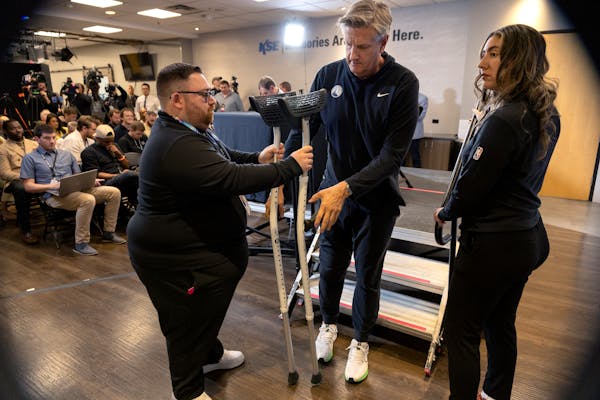A physically disabled man arrested for drunken driving on a scooter he uses to get around cannot be convicted, because the machine is not a motor vehicle under state law, the Minnesota Court of Appeals said Monday.
Over the years, people behind the wheel of a riding lawnmowers and even a customized motorized recliner have been charged with drunken driving. But the Appeals Court reversed the conviction of James Anthony Brown Jr., who was charged in July 2009 with third-degree driving while impaired for driving his motorized scooter on the sidewalks of Grand Rapids while drunk. Brown argued that he should not be charged because he was not driving a motor vehicle.
According to the opinion, the scooter has a maximum speed of 5.75 miles per hour. On the day in question, he drove the scooter to a local car dealership, where employees called police. Brown took a breath test and tested 0.17 for alcohol concentration. He was charged with third-degree DWI because he had a previous DWI conviction.
Brown was convicted of a gross misdemeanor. He appealed, arguing that if his scooter is considered a motor vehicle, his constitutional due process and equal protection rights were violated. The scooter does not require a driver's license to operate and does not require insurance or license plates.
The appeals court pointed out that the state's definition of motor vehicle includes "every vehicle which is self-propelled," with the exception of "an electric personal assistive mobility device." Statutes define pedestrians as "any person afoot or in a wheelchair." The definition of wheelchair includes "any manual or motorized wheelchair, scooter, tricycle, or similar device used by a disabled person as a substitute for walking."
The court concluded that Brown's scooter is a wheelchair, not a motor vehicle, and overturned the conviction. It did not address his constitutional rights because the case was decided on that definition alone.
ABBY SIMONS

Star Wars superfans celebrate May 4th with ritual movie marathons, blue milk, costumes and community

St. Paul's Arborators play in the treetops: 'We're the world's only tree-climbing brass band'
Medic called in wake of shooting in Chanhassen

'I'm a living miracle.' Tommies athlete goes from broken bones to broken record

